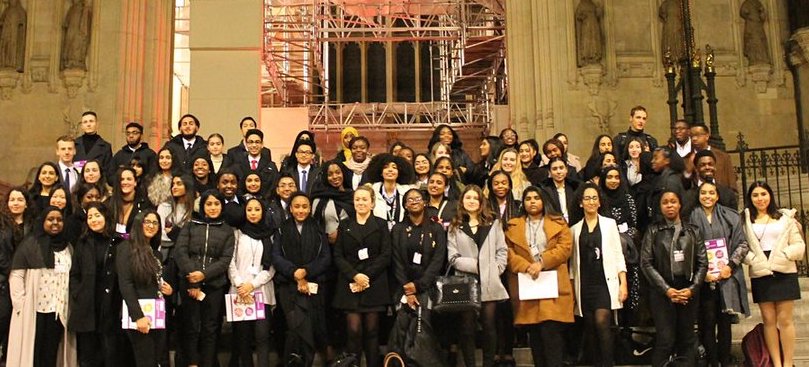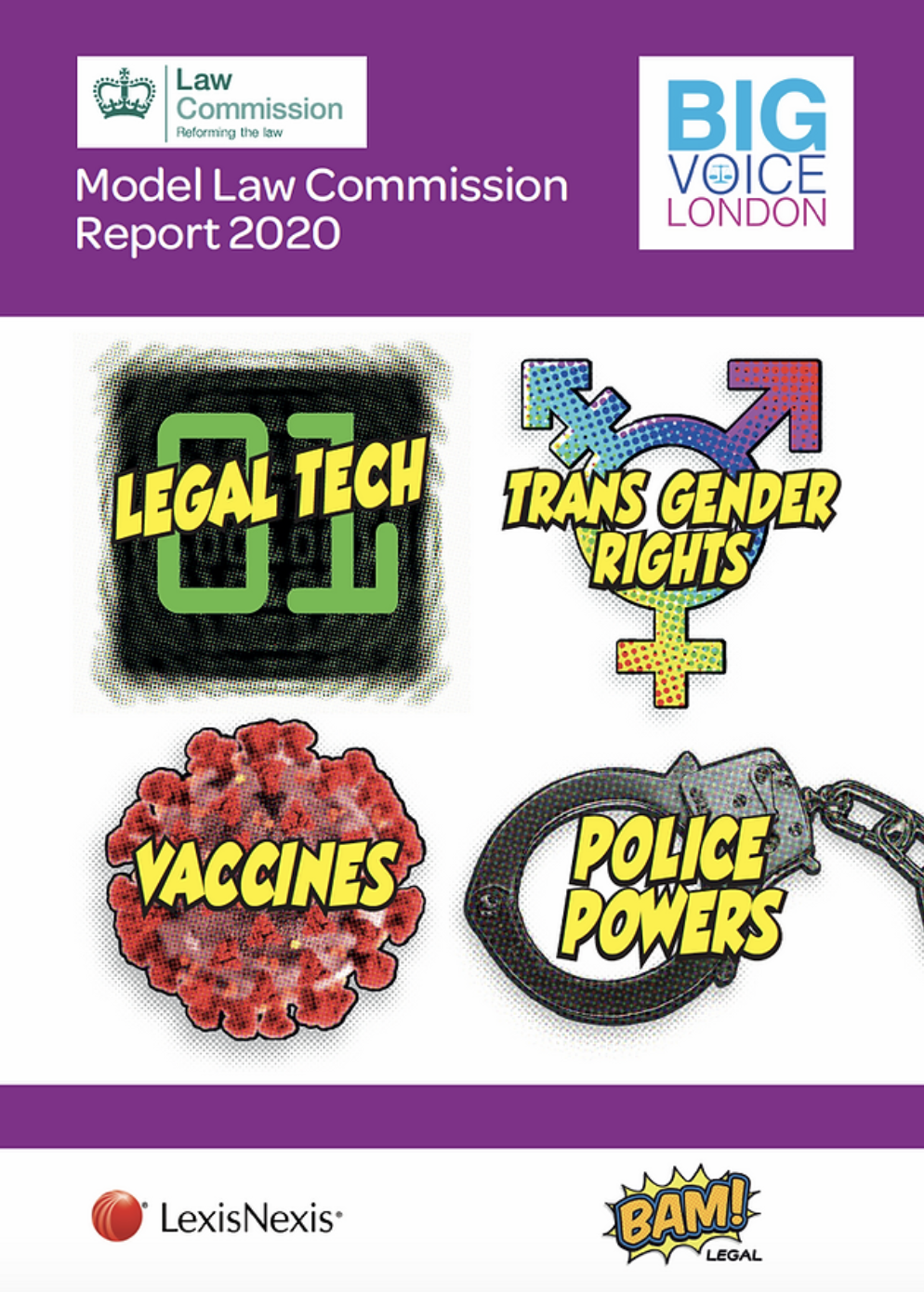Model Law Commission Report 2020: lawyers of the future on the future of law
We review the Model Law Commission Report 2020 and see how young people think the law could be changed for the better… Continue reading

Big Voice London is a social mobility and legal education charity that enables 16-18 year olds from non-traditional backgrounds to engage with law and legal policy and thereby to inspire them towards a law-based career. The Model Law Commission is its most demanding project even at the best of times. It involves teams of students from various non-fee-paying schools and colleges working together over a three-month period on projects to research a particular area of law and come up with proposals for reform.
As its chief executive Victoria Anderson reports, this year has been even more challenging, in the face of school closures, cancelled exams and confusion over results and university entrance criteria. Despite all this it seems that young people have taken up the opportunities offered by Big Voice London in bigger numbers than ever before, and fought through lockdowns, self-isolation and unreliable wifi to do it.
The resulting Model Law Commission Report 2020 is all the more impressive for the operational challenges it must have overcome. The report covers four projects, all of which are in some way highly topical. Its launch on 17 December 2020 was a virtual affair, but the report in real life is a solid piece of work.
The Property, Family and Trusts team have tackled Transgender Rights, citing the recent cases of Keira Bell in relation to pre-treatment advice and subsequent de-transitioning (see R (Bell) v Tavistock and Portman NHS Foundation Trust [2020] EWHC 3274 (Admin); [2020] WLR(D) 655) and In re TT and YY on registration of a female to male trans parent as “father” after giving birth (see R (McConnell) v Registrar General for England and Wales [2020] EWCA Civ 559; [2020] 3 WLR 683) among others. The team researched public attitudes to transgender rights and recommended making changes to the law in relation to education, marriage, gender recognition and parental status.
The Commercial & Common Law team looked at the laws governing Legal Tech, and the lack of technology training as an integral part of legal education in this country (unlike some others). The need for skills and awareness of legal technology has been highlighted by the pandemic with the switch to remote hearings and consultations, while the use of artificial intelligence and e-discovery in routine legal practice continues to accelerate. The team highlights the risk of liability for data breach and the risk of discrimination in the undisclosed biases often inherent in machine learning and the “black boxes” (itself perhaps a problematic description) of algorithmic processes. They recommend more education and awareness among the profession, better design, and mandatory auditing and transparency of algorithms.
The Public Law team tackled the law relating to Vaccines, and all the problems associated with public distrust and misinformation that the current pandemic has highlighted. They propose the inclusion of vaccine education in the National Curriculum from ages 11 to 16 and the establishment of an independent statutory body to tackle misconceptions and educate the wider public as to the benefits of vaccination. They also make specific proposals about the limitation period and criteria for liability over vaccine injury and disablement, currently covered by the Vaccine Damage Payments Act 1979 – for example that the requirement that the victim be at least 60% disabled should be replaced with a sliding scale, that age restrictions be abolished, the time limit extended and the types of vaccine included be extended (eg to include mumps as well as the measles and rubella against which it is routinely vaccinated). The team also looks at the pros and cons of making vaccination legally compulsory and at whether manufacturers should be indemnified by the government.
Finally the Criminal Law team deals with Police Powers, which again have received heightened scrutiny during the pandemic, and the enforcement powers (exercised with varying degrees of enthusiasm by regional forces) under the regulations. The project does not focus on that, but on more long term concerns about stop and search, the issue of search warrants, excessive use of force and unlawful police killings, and the particular problems of policing those with mental health and capacity issues. Again, the recommendations include better education, such as teaching all children their rights before they leave school, and better community engagement by the authorities to prevent the alienation and mistrust that continue to impede fair policing. In relation to search warrants they propose a somewhat fanciful plan for magistrates to receive two years’ training and sit an exam before being allowed to issue search warrants (at present, lay magistrates barely get a matter of days or at most weeks of training for all their different work, most of it while on the job). In relation to the police their recommendations include better training on the use of firearms and better resources for mental health.
Big Voice London is supported and sponsored by a number of organisations, including LexisNexis and BamLegal, and could not do what it does without the engagement and involvement of many lawyers, legal academics and others to assist and guide the students in their research. It’s a fantastic project and it’s heartening to see how well it has managed to forge ahead in spite of the obstacles thrown up by the pandemic.

Cover artwork: Isobel Williams and Peter Sloper.
Featured image: a previous year’s event at Parliament (via Big Voice London).